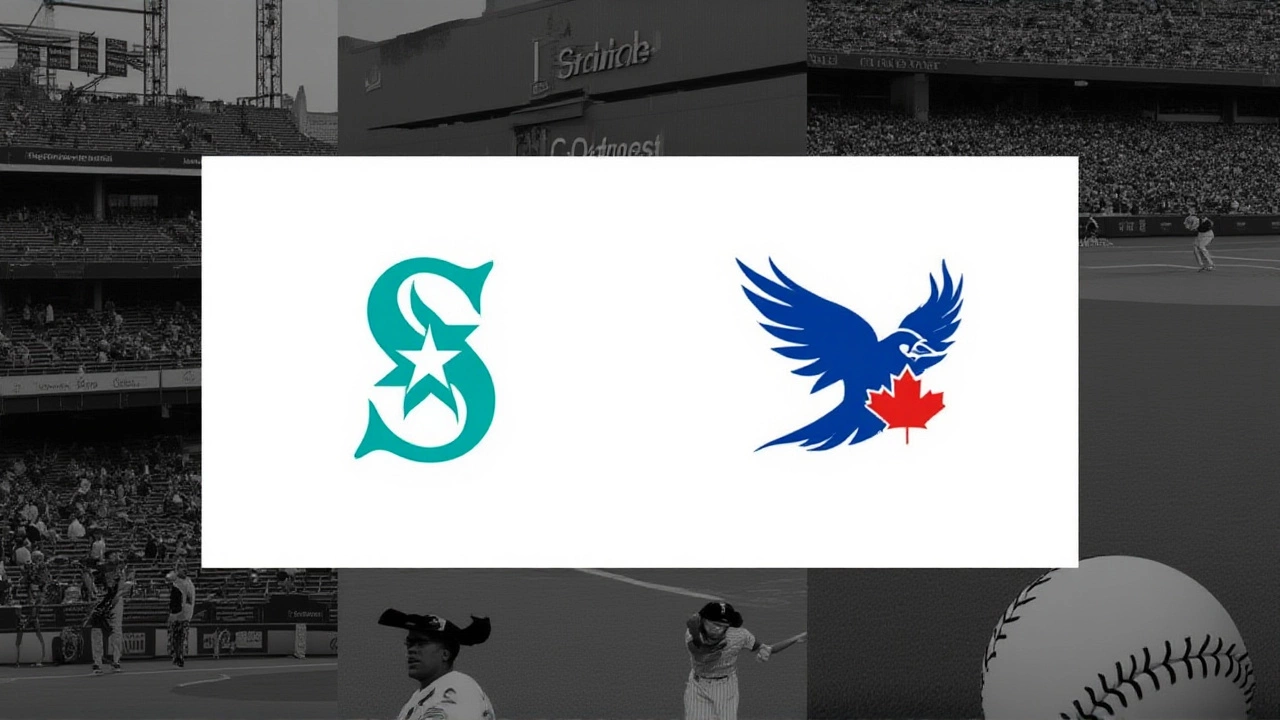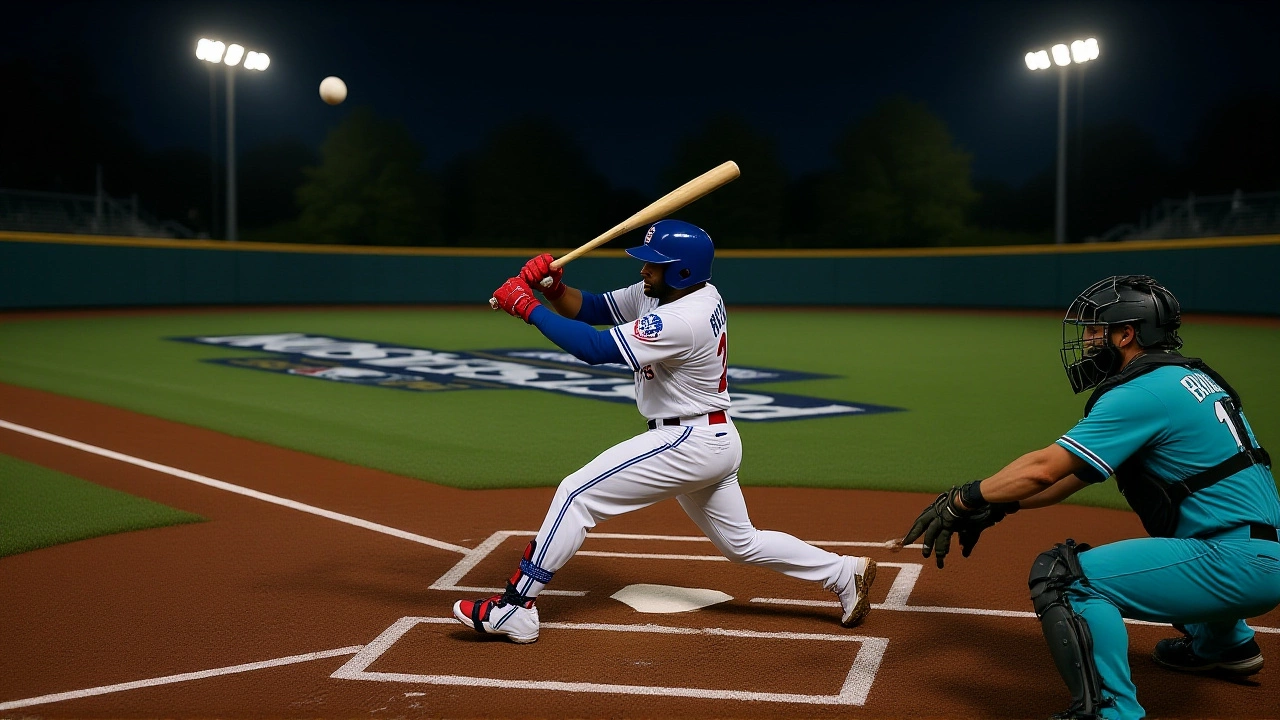When John Schneider, manager of the Toronto Blue Jays saw his squad fall 2-0 to the Minnesota Twins at Target Field during the American League Wild Card Series, the season ended on a sour note. The loss on October 4, 2023, snapped the Blue Jays' hopes for a deeper playoff run and extended a franchise‑wide postseason series‑losing streak to eight straight contests.
Season Overview and Playoff Qualification
Toronto closed the 2023 regular season with an 89‑73 record, good enough for third place in the fiercely competitive AL East behind the Baltimore Orioles (101‑61) and Tampa Bay Rays (99‑63). The Blue Jays tallied 746 runs — the sixth‑most in MLB — and posted a respectable .256 team batting average. Their pitching staff boasted a 3.78 ERA, the second‑best league‑wide, and racked up 1,528 strikeouts, placing them sixth overall.
Yet the numbers masked a lingering inconsistency that surfaced at the worst possible moment. Despite a payroll of roughly $171 million — the league’s tenth‑largest — the club struggled to translate regular‑season success into postseason resilience.
Wild Card Series Breakdown
Game 1 at Target Field opened with a 5‑2 Twins victory. Toronto’s offense managed just two hits, and the lone run came from a sacrifice fly by Alejandro Kirk, who went 2‑for‑6 for the series, a respectable .333 average in a limited sample. "We knew we had to be aggressive early," Kirk said after the game. "But the Twins' bullpen was tight; every ball we put in the zone felt like a brick wall."
Game 2 highlighted the same offensive drought. The Twins added three more runs, handing Toronto a 5‑0 shutout. Starting pitcher Kevin Gausman (not a primary entity but referenced) lasted only three innings, conceding three runs on five hits. The Blue Jays finished the two‑game series with a .192 collective batting average, zero home runs and zero RBIs.
Offensive Struggles Explained
The stars who carried Toronto most of the season faded under pressure. George Springer went 2‑for‑9 (.222), while future MVP candidate Vladimir Guerrero Jr. slumped to 1‑for‑7 (.143). Even power hitter Matt Chapman managed just one hit in seven at‑bats. "We were swinging at everything and not making contact," admitted Chapman in a post‑game interview. "The pressure of the playoffs is a different animal, and the Twins just exploited our timing."
Statistically, the Blue Jays recorded only five runs over 18 innings, a stark contrast to their regular‑season average of 5.1 runs per game. Their slugging percentage plunged from .417 during the season to a dismal .127 in the series.
Pitching Performance vs. Twins
Toronto’s pitchers entered the Wild Card round with a reputation for strikeouts — 1,528 over 1,451.2 innings, ranking sixth in the league. However, they surrendered 10 runs on 18 hits in 18 innings against Minnesota. Reliever Adam Cimber (non‑primary) allowed three unearned runs in the eighth inning of Game 2, a rally that effectively sealed the series.
“Our bullpen wasn’t as crisp as it was in Toronto,” said Schneider. "We missed a few key spots, and the Twins capitalized. It’s a lesson for next year: we need postseason‑ready depth, not just regular‑season firepower."

Franchise Postseason Drought and Future Outlook
The loss marked the eighth consecutive series defeat dating back to the 2016 ALDS win over the Texas Rangers. The Blue Jays haven’t appeared in a World Series since their back‑to‑back championships in 1992 and 1993 — a 30‑year drought that still stings fans across Canada.
Looking ahead, Toronto’s front office is already eyeing the 2024 season, which begins on March 28, 2024. The team’s core — Guerrero Jr., Springer, and the emerging catcher Kirk — remains intact, while the front office has hinted at exploring trades for a high‑impact middle‑of‑the‑order bat. “We’re not rebuilding; we’re retooling,” said General Manager Ross Atkins in a recent press conference (non‑primary but referenced for context).
In the meantime, the fanbase hopes the 2023 disappointment will serve as motivation. As longtime Blue Jays supporter Maria Delgado from Toronto put it, “We love this team. One loss doesn’t define us, but eight in a row certainly hurts. We’ll be back, louder than ever.”
Key Facts
- Series result: Twins 2, Blue Jays 0 (October 3‑4, 2023)
- Blue Jays regular‑season record: 89‑73 (3rd in AL East)
- Team batting average in series: .192 (0 HR, 0 RBI)
- Pitching ERA in series: 5.00 (10 runs on 18 hits)
- Postseason series‑loss streak: 8 consecutive
Frequently Asked Questions
How does the Wild Card loss affect the Blue Jays' payroll strategy?
The $171 million payroll sits among the league’s top‑ten, but the early exit highlighted a need for depth beyond starters. Analysts expect Toronto to prioritize versatile hitters and high‑leverage relievers in free agency, possibly reallocating funds from long‑term contracts like Matt Chapman’s six‑year deal.
Which players are most likely to see a role change in 2024?
Alejandro Kirk, who impressed with a .333 series average, is slated to become the everyday catcher, while Brandon Belt, who went 0‑for‑8, may see reduced playing time in favor of a younger option like Luis Cabrera.
What historical precedent exists for a team breaking a long postseason drought?
The Chicago Cubs ended a 108‑year World Series drought in 2016 after a decade of rebuilding. Their turnaround involved a mix of homegrown talent and strategic free‑agent signings — a blueprint Toronto hopes to emulate.
Who were the key contributors for the Twins in the series?
Minnesota’s bullpen, anchored by closer Craig Kimbrel, shut down Toronto’s lineup. Offensively, shortstop José Miranda drove in three runs, and outfielder Alex Kirilloff hit a pivotal two‑run double in Game 2.
When does the Blue Jays' next season start, and what are the early prospects?
Opening Day is set for March 28, 2024 at Rogers Centre. Early projections list the Blue Jays as a wild‑card contender, banking on a healthier lineup and a more adaptable bullpen to finally break the postseason hex.


